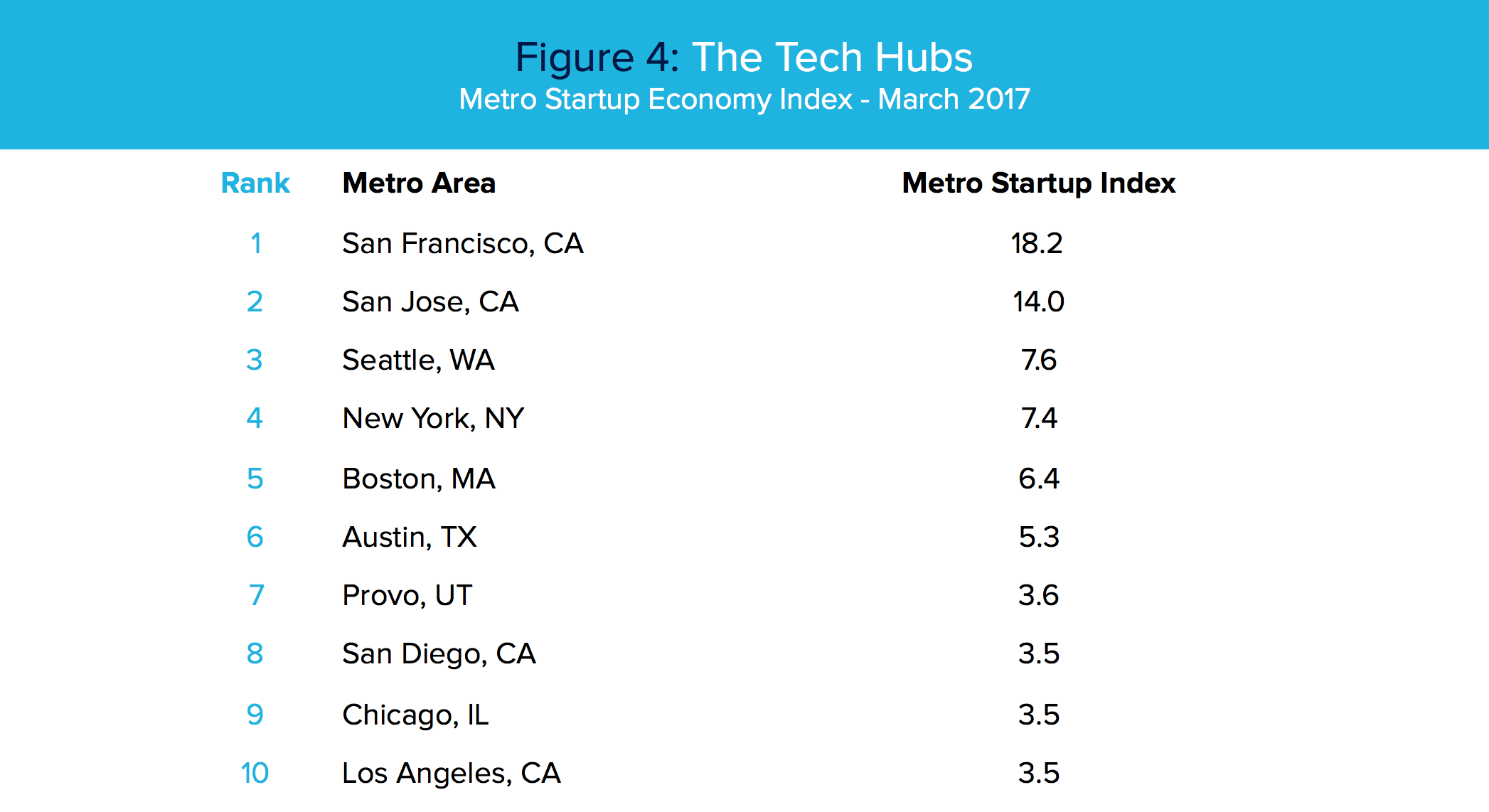One million additional jobs per year can be created if pro-startup and entrepreneurship policies
put in place
Washington, D.C. —
TechNet, the national, bipartisan network of innovation economy
CEOs and senior executives, and the Progressive Policy Institute (PPI) today unveiled groundbreaking research that shows that encouraging
the creation of dynamic startups across the nation can create one million new jobs
per year.
The study, conducted by Dr.
Michael Mandel of the Progressive Policy Institute on behalf of TechNet, found growing
evidence that dynamism is returning to our economy. Net establishment formation is accelerating to
pre-recession levels, showing that new companies are being formed and existing enterprises
are expanding. Additionally, 48% of net establishment
formation is happening outside of the 35 largest metro areas, clearly
indicating the dynamism is spreading.
To further examine this spread
of dynamism and “Startup Economy” jobs throughout the nation, the study identifies
10 technology hubs and 25 “Next in Tech” cities with a thriving startup environment. At the top of the “Next
in Tech” index are Washington, D.C., Atlanta, Denver, Salt Lake City, Portland,
Dallas, Raleigh-Durham, Worcester, and Philadelphia.
“Startup culture, which began in the garages of Silicon Valley,
has spread across the nation,”
said Linda Moore, president and CEO of TechNet.
“From Provo to Portland and Nashville
to New Orleans, entrepreneurs are launching new ventures in the hope that they can
become the next big thing. Startups like
these are the economic engine that drives job creation. In 2014, companies in their first five years of life created
2.2 million jobs, while firms older than five years created only 450,000 jobs. That’s remarkable, and it means that if we put
the right policies in place to support startups, we can create one million new,
good-paying jobs each year.”
“Policymakers
on the national, state, and local level must pay close attention to startups — encouraging
their formation and removing the obstacles to their growth,”
said Dr. Mandel. “Put simply, this requires better regulatory policy, improved access to
talent, and better access to markets and capital. Such startup friendly policies do not necessarily
require large amounts of money. They do,
however, require governments to do things differently than before. We need one million additional jobs annually from
young firms. It won’t be easy — but it’s
the only way that the U.S. can grow.”
“These
long established industries that are transforming and becoming redefined by emerging
technologies are not just based on the coasts, but are across America — in every
city and corner of the country,” said Terry Howerton,
co-founder and CEO of TechNexus
Venture Collaborative. “The industry and domain expertise to apply new
technology — and the jobs created by this disruption — are best suited for the communities
where today’s startups and corporations exist, everywhere. That’s why smart public policy at the federal,
state, and local levels is critical to keeping these new jobs distributed around
the country.”


Startup Agenda
The study concludes that the goal of startup
policy should be to spur the creation of an additional one million jobs in young
firms each year. This requires the adoption
of a multi-pronged federal, state, and local “Startup Agenda” including:
- Improving access to capital through updated rules that make crowdsourcing easier and put in place tax incentives to encourage investment in early stage, high growth local companies.
- Fostering access to talent by ensuring that STEM and computer science is taught in every school in America, developing worker retraining programs, and reforming high-skilled immigration policies that encourage entrepreneurship.
- Opening up access to markets through trade policies that encourage U.S. exports.
- Instituting a pro-innovation regulatory and fiscal policy and reducing the burden of regulation and taxation on small companies.
The report can be downloaded here.
